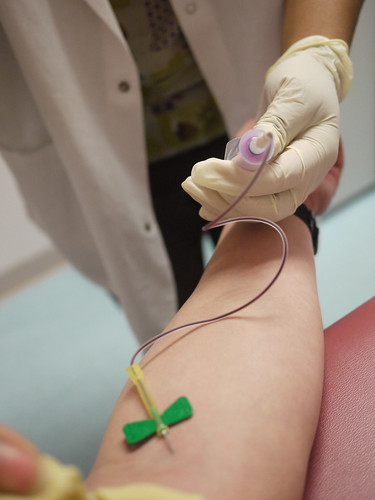
Our bodies are complex combinations of organs, fluids, and life sustaining requirements. For many of us our health is as important as the people in our lives. However, we still fail to test the most important part of our system, our blood. We get our eyes checked, we have our vitals checked, and why do most of us fail to get our blood checked? Knowing what is in your blood is important to detect risks that only blood tests can find. Here are 5 conditions a blood test can reveal and help save your life.
Anemia
Anemia is a condition caused by a lack of healthy blood cells. The red blood cells are responsible for delivering oxygen to the body. Anemia can be found through routine blood tests, as well as the cause in order for the patient to receive proper treatment if needed. Some of the common causes of anemia are:
Poor diet
Slow blood loss
Damage or removal of parts of the stomach or intestines
Certain medications
Destruction of red blood cells- often caused by problems with the immune system
Kidney disease, cancer, or ulcerative colitis
Pregnancy
Conditions that affect the bone marrow such as lymphoma, leukemia, or aplastic anemia
As your red blood cells are an important part of your everyday health, it is important to assure you have proper delivery of oxygen to your body. A simple blood test can determine the health of your red blood cells, the number of cells, and if anemia occurs, it can determine the cause and treatment.
Diabetes
In 2011, the American Diabetes Association showed 8.3% of Americans suffer from diabetes. That is 18.8 million people diagnosed, an.d 7 million people undiagnosed. New cases are prominent in those who are 20 years of age or older. Each year over 1 million new cases are diagnosed
Diabetes comes with a long list of complications including, but not limited to, blindness, heart disease and stroke, kidney disease, neuropathy, and amputation of lower limbs. Blood tests are performed to diagnose diabetes and determine the cause. As type 1 and type 2 diabetes are hereditary, the factors may be out of your control. Proper diet and constant monitoring can help fight the effects of diabetes.
Sexually Transmitted Diseases
The Center for Disease Control released a statistical analysis in February 2013 of incidences of STDs in the US. This report showed 20 million new cases were reported, bringing the total infections to 110 million cases in the US. For those in committed relationships where both partners have been tested, this statistic won't pose a threat. However, for those who are sexually active and dating, you may be at risk.
There is a common misconception that all STDs can be seen visually. It is that misconception which causes the number of infections to rise. Though many STDs cause a visual outbreak, there are many which show no symptoms at all. Some of these diseases include:
Hepatitis
Syphilis
HIV/AIDS
In some cases Herpes
Many people infected with an STD may go years without showing a symptom. This contributes to the higher rate of infection among single and sexually active adults. A blood test can reveal certain STDs which lie dormant, other STDs can be found through a swab or visually by your physician.

Vitamin Deficiencies
As we grow older, life seems to get busier. Aside from stress and fatigue, a busy lifestyle can also affect your diet. Many of us barely have time to eat properly and will grab a quick bite in the nearest drive through or even skip meals. This can cause vitamin deficiencies that lead to other conditions.
A routine blood test when you have your check up can determine your vitamin levels and overall health. A biochemical analysis will check sodium, potassium, chloride, glucose, and calcium levels. As many of us fail to control our diets, we may be at risk of more severe conditions. Beri-beri, photophobia, pellagra, scurvy, rickets, and anemia can be caused by various vitamin deficiencies. A proper diet can help reduce these risks.
Cholesterol
The CDC reports around 600,000 people die every year from heart disease. This includes heart attack and strokes. Many of these deaths could have been prevented with testing and lifestyle changes. Cholesterol is a contributing factor to heart disease. A blood test performed to test your cholesterol levels can determine your risk and increase your chance for survival. As with many conditions, a proper diet to lower you high cholesterol levels can help reduce risks and assure a longer life.
A yearly health checkup is an important part of aging. Along with your common vital checkups and tests, a blood test can reveal risks you never knew you had. Take responsibility for your health and schedule regular blood screenings to find any underlying conditions and treat them accordingly.







Leave a Reply: